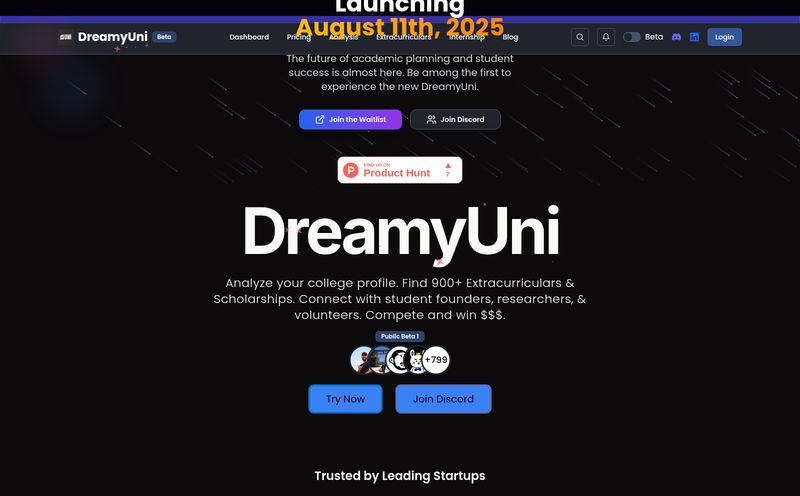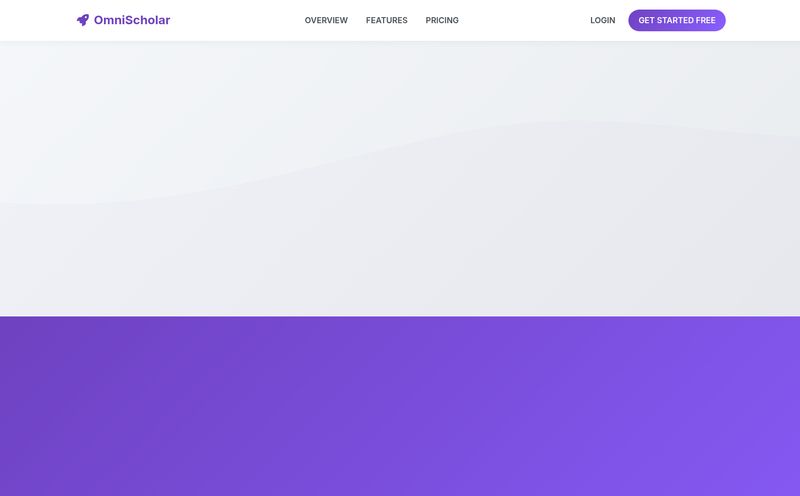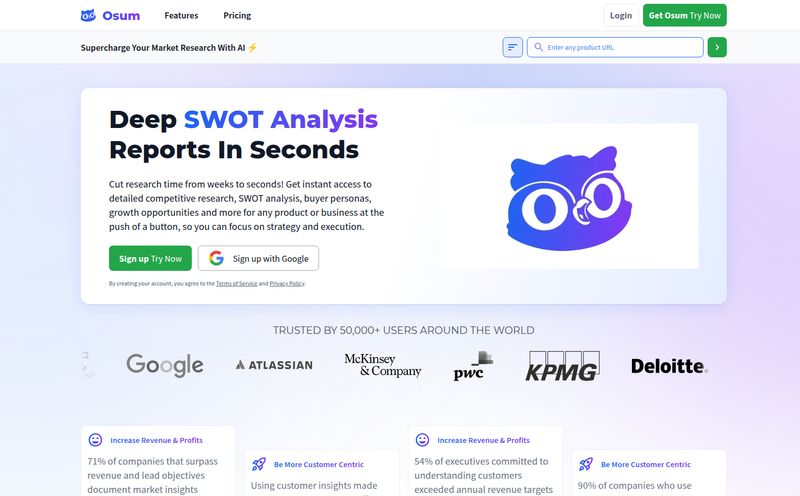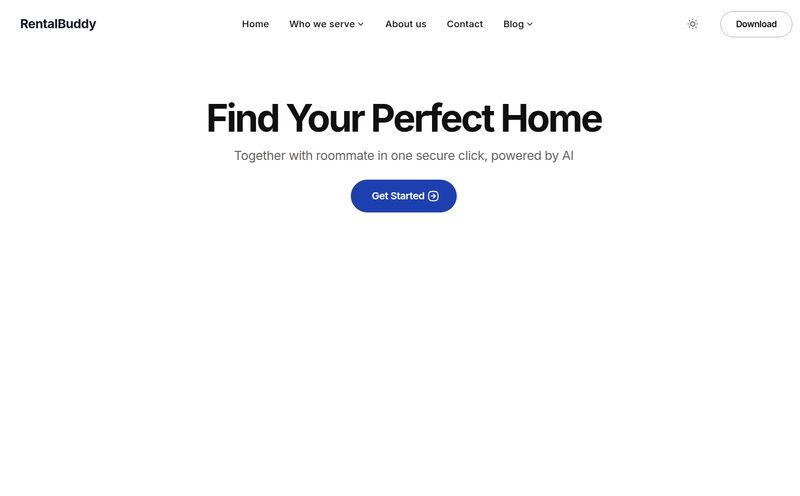The literature review. It's the part of every research project that we all dread, isn't it? It starts with a simple search and spirals into a chaotic mess of 57 open browser tabs, a desktop littered with cryptically named PDFs, and that creeping sense of dread that you’ve missed something huge. Or worse, that you’re building your entire argument on a paper that’s resting on shaky ground.
I’ve been in the SEO and research game for years, and I thought I had my system down. Google Scholar alerts, a complicated Zotero library, and a whole lot of caffeine. But I always had this nagging feeling. A citation count tells you a paper is popular, but it doesn’t tell you why. Is it being praised as groundbreaking, or is it being systematically torn apart by other researchers? There was no easy way to know. Until I stumbled upon Scite.
It promised a new way of looking at research, not just by counting citations, but by understanding them. Honestly, I was skeptical. We’ve seen a million “revolutionary” research tools come and go. But after giving it a proper spin, I’m here to tell you, this one feels different.
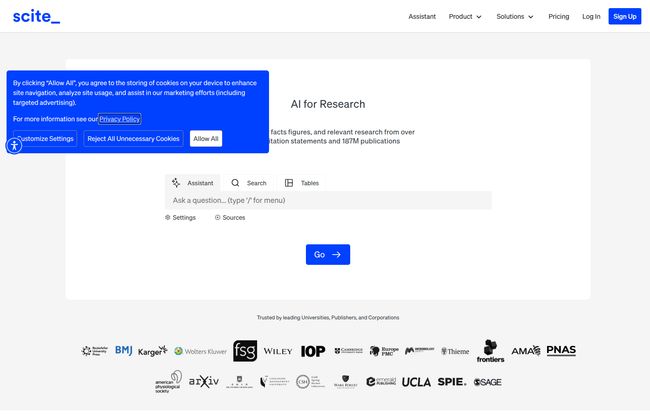
Visit Scite
So, What Exactly Are "Smart Citations"?
This is the core of what makes Scite so interesting. Instead of just giving you a number of citations, Scite’s AI reads the citation statements—the actual sentences where one paper references another—and classifies them. It tells you if a paper is supporting, contrasting, or simply mentioning the work it’s citing.Think about that for a moment. It's the difference between seeing a name on a party guest list and actually hearing what people at the party are saying about them. A high citation count could just mean someone is famous; a high supporting citation count means they're respected. A high contrasting citation count? Well, that means there’s drama, and you need to know about it.
This simple shift from a quantitative to a qualitative view of citations is, frankly, a game-changer for anyone doing a serious literature review. You can instantly gauge the academic consensus on a topic or paper without having to manually track down and read every single citing article. What a concept.
The Scite Features That Actually Matter
Okay, the concept is cool. But what about the actual tools in the toolbox? I kicked the tires on the platform, and a few features really stood out.
The Supporting vs. Contrasting Breakdown
When you look up a paper, Scite gives you a clean dashboard showing, for example, “Cited by 754 publications,” with a breakdown like “650 supporting, 21 contrasting, 83 mentioning.” Instantly, you have a snapshot of that paper’s reception in the scientific community. You can click on any of those numbers to read the exact sentences from the citing papers. This helps you quickly find strong evidence to back up your own claims or, just as importantly, find the critical debates you need to address in your work.
The "Oh Crap" Button: Reference Check
This feature alone might be worth the price of admission. We’ve all heard the horror stories—a PhD student builds their thesis on a key paper, only to find out months before their defense that the paper was retracted. It’s a nightmare. Scite’s Reference Check is a life-saver, literaly. You can upload a manuscript or paste your bibliography, and it will scan all your references. It flags any that have been retracted or have received a significant number of contrasting citations. It's an automated, pre-submission integrity check. In an age of increasing retractions and the “publish or perish” pressure, this feels less like a feature and more like essential protection.
Beyond the Citations: Assistant and Dashboards
Scite also includes a growing suite of other tools. There's an AI Assistant that can help you find papers or get summaries, which is becoming standard fare for these kinds of platforms. More powerfully, you can create custom dashboards to evaluate entire groups of articles—say, everything published by a certain institution or on a specific topic in the last year. For PIs, department heads, or corporate R&D managers, this is an incredibly efficient way to get a bird's-eye view of a research field.
Who Should Be Using Scite?
While it seems geared toward academics, I think the audience is broader. Grad students, you are the prime audience. This tool could cut your literature review time in half and make your dissertation that much stronger. For seasoned professors and researchers, it’s a powerful way to stay on top of your field, review manuscripts, and spot trends. But I also see huge potential in the corporate world. If you work in R&D, market research, or any field that relies on scientific or technical literature, Scite offers a way to quickly find reliable data and vet sources without needing a PhD in the subject matter.
Okay, Let's Talk Money: Scite Pricing
Nothing this good is ever completely free, right? Scite operates on a subscription model. They have a Personal Plan for individual users, which you can pay for monthly or annually (with a discount for the annual plan, as is standard). They also offer a free trial, so you can test it out before committing.For larger groups, there are Organization Plans with custom pricing for universities, publishers, and companies. These come with extra administrative features like user analytics and SSO integration.My take? If you're a student or independent researcher, the cost is an investment. You have to weigh it against the value of your time. How many hours would this save you? If you’re a professional whose work depends on high-quality research, the cost is likely a rounding error compared to the value of avoiding one bad source.
No Tool is Perfect: The Caveats
I’m a big fan, but let’s not get carried away. No tool is a magic wand. First, the deep learning model that classifies citations is impressive, but it’s not infallible. You still need to apply your own critical thinking. Don't just take the AI's classification as gospel; use it as a guide to read the citation context for yourself.
Second, it’s a subscription service. In a world where many academics are already paying for various journals and tools, adding another subscription can be a tough sell. And yes, like any web tool, it can have its occasional hiccup (I noticed a 500-error page in one of their website screenshots, which is kind of refreshingly honest!). These aren't deal-breakers for me, but they’re worth keeping in mind.
Frequently Asked Questions About Scite
- Does Scite offer a student discount?
- Yes, according to their FAQ page, they do offer discounts for students. You'll likely have to verify your student status, but it's great that they make it more accessible.
- What happens when my free trial ends?
- After the trial period, your access to the premium features will be restricted. To continue using the full suite of tools like the Reference Check and seeing all Smart Citations, you'll need to upgrade to a paid plan.
- How is Scite different from Google Scholar or a reference manager like Zotero?
- They serve different purposes. Google Scholar is a search engine for finding papers. Zotero is for organizing your references and formatting bibliographies. Scite is an analytical tool. It works with those tools to help you evaluate the papers you find and organize, telling you how they’re being talked about in the literature.
- How reliable is the retraction data?
- Scite pulls retraction information from sources like publisher notices and databases like Crossref. It's one of the most comprehensive systems out there for automatically flagging these, but it's always good practice to click through to the source to confirm the details of a retraction notice.
- Can I upload my own PDFs to be analyzed?
- The main function is based on its massive database of published articles. The Reference Check feature allows you to upload a manuscript or bibliography to check your citations against their database, which is probably the closest functionality to what you're asking.
- Is canceling my subscription easy?
- Based on their site, you can manage your subscription and cancel it from your account settings. It seems to be a straightforward process, which is always a relief with online subscriptions.
The Final Verdict: Is Scite Worth It?
After a week of throwing everything I could at it, I'm sold. Scite isn't just another research database. It represents a fundamental shift in how we can interact with scientific literature. It moves us beyond the simple, often misleading metric of citation counts and pushes us toward a genuine understanding of the conversation happening between papers.
The ability to instantly see if a study is supported, debated, or has been retracted is not just a time-saver; it’s a powerful tool for improving the quality and integrity of our work. For any serious researcher, student, or analyst, I think Scite isn't just worth a look—it might just become an indispensable part of your workflow. I know it's going to be part of mine.
